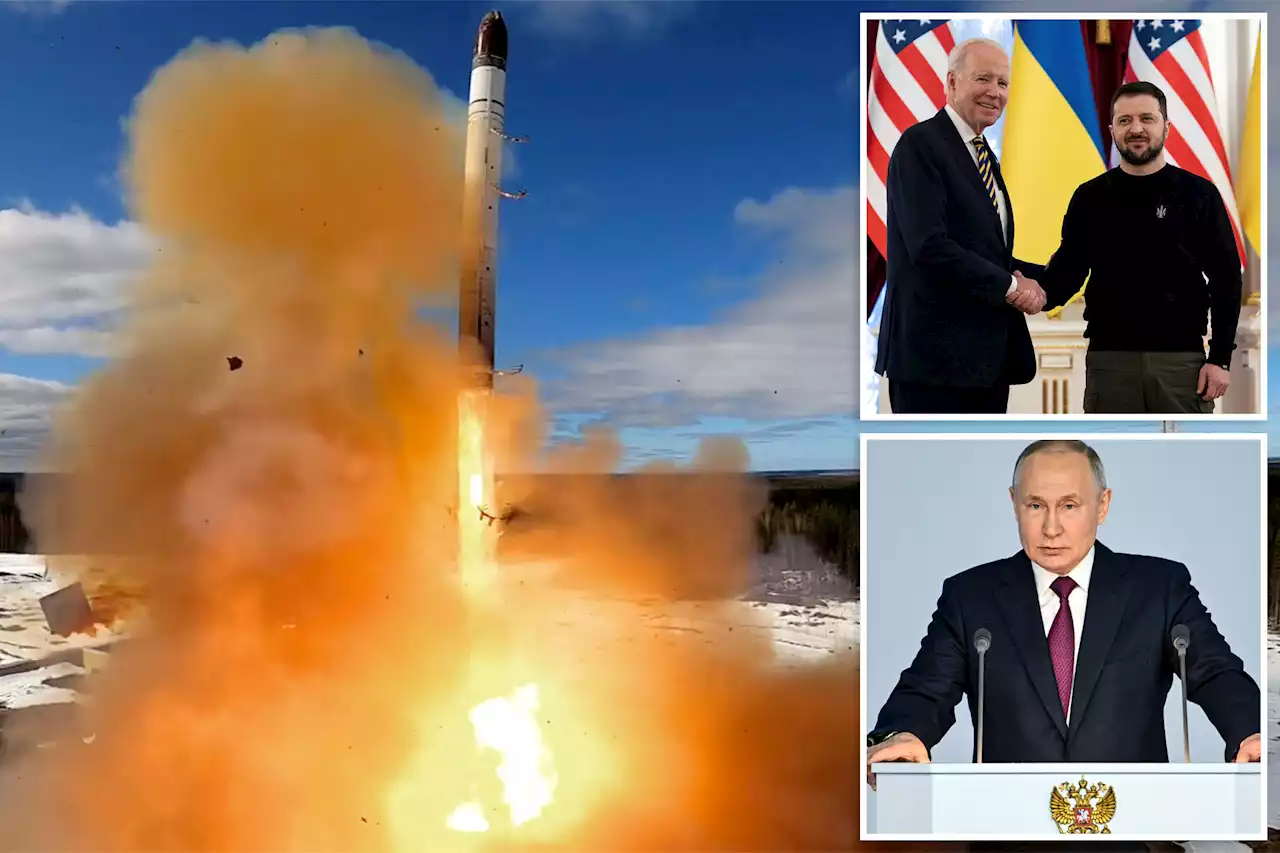One year after the Russian invasion of Ukraine, many African countries have tried to maintain neutrality, walking a diplomatic tightrope even as the war has had a major impact on food and fuel prices across the continent.
Welcome back toIt’s great to have you with us again. Nanjala, why don’t you talk about that, your thesis that Africa is caught between the West and Russia, and what that means, what Russia has done in Africa, and also the effect of the Ukraine war?It’s a multilayered issue. First of all, I think it’s always important to establish from the top that Africa is a large place. It’s a complicated continent.
And then there are countries like Sudan and Uganda and Zimbabwe, which have found themselves on the wrong side of political interventions, whether we’re talking about sanctions against the military regime in Sudan, we’re talking about sanctions against the regime in Zimbabwe. And sort of you get the sense that they’re playing off Western countries and Russia against each other to try and get some kind of leeway, to try and get some kind of political room under a sanctions regime.
I would say the vast majority of African countries have embraced a more neutral tone and have refused to take sides, again because of recent political history. We’re talking about nation-states that are still navigating European access.
México Últimas Noticias, México Titulares
Similar News:También puedes leer noticias similares a ésta que hemos recopilado de otras fuentes de noticias.
 History As It Happens: One Year of War w/ Anatol LievenThis is the second episode in a two-part series marking the anniversary of the Russian invasion of Ukraine, which began on February 24, 2022. The war in Eastern Europe will determine whether Ukraine can maintain its sovereign independence achieved in 1991 with the collapse of the Soviet Union. Russia’s war is a direct war against Ukraine, and an indirect conflict with the U.S., NATO, and “the West.” Indeed, over the past year, it has become increasingly difficult to separate Ukraine’s interests from those of the U.S., as both rhetoric about maintaining the liberal world order and material assistance for Ukraine’s defense have flowed from Washington. Barack Obama, in an interview with The Atlantic near the end of his presidency, envisioned a different set of priorities for U.S. foreign policy. Ukraine was a core Russian interest, not an American one, he cautioned. Two years prior, Mr. Obama dismissed Russia as a “regional power” as it annexed Crimea. Fast forward to February, 2022. Days before Russia's invasion began, President Joseph R. Biden announced the U.S. would stand by Ukraine but not only for Ukraine’s sake. Democracy itself was at stake. In this episode, Anatol Lieven of the Quincy Institute for Responsible Statecraft discusses what to expect as the war enters its second year and the dangers inherent in the potential escalation of conflict.
History As It Happens: One Year of War w/ Anatol LievenThis is the second episode in a two-part series marking the anniversary of the Russian invasion of Ukraine, which began on February 24, 2022. The war in Eastern Europe will determine whether Ukraine can maintain its sovereign independence achieved in 1991 with the collapse of the Soviet Union. Russia’s war is a direct war against Ukraine, and an indirect conflict with the U.S., NATO, and “the West.” Indeed, over the past year, it has become increasingly difficult to separate Ukraine’s interests from those of the U.S., as both rhetoric about maintaining the liberal world order and material assistance for Ukraine’s defense have flowed from Washington. Barack Obama, in an interview with The Atlantic near the end of his presidency, envisioned a different set of priorities for U.S. foreign policy. Ukraine was a core Russian interest, not an American one, he cautioned. Two years prior, Mr. Obama dismissed Russia as a “regional power” as it annexed Crimea. Fast forward to February, 2022. Days before Russia's invasion began, President Joseph R. Biden announced the U.S. would stand by Ukraine but not only for Ukraine’s sake. Democracy itself was at stake. In this episode, Anatol Lieven of the Quincy Institute for Responsible Statecraft discusses what to expect as the war enters its second year and the dangers inherent in the potential escalation of conflict.
Leer más »
 Ukraine still fighting a year after Russian invasion, says more help neededUkrainian Defense Minister Oleksii Reznikov has seen a lot in the year since Russian forces crossed over the border into his country — and very little of it has gone the way the experts predicted.
Ukraine still fighting a year after Russian invasion, says more help neededUkrainian Defense Minister Oleksii Reznikov has seen a lot in the year since Russian forces crossed over the border into his country — and very little of it has gone the way the experts predicted.
Leer más »
 Live blog: Ukraine holding front line despite mass Russian pressure — KievRussia delivers a warning to West over Ukraine by suspending a landmark nuclear arms control treaty, announcing that new strategic systems had been put on combat duty, and threatening to resume nuclear tests, as fighting enters its 364th day.
Live blog: Ukraine holding front line despite mass Russian pressure — KievRussia delivers a warning to West over Ukraine by suspending a landmark nuclear arms control treaty, announcing that new strategic systems had been put on combat duty, and threatening to resume nuclear tests, as fighting enters its 364th day.
Leer más »
 Russian ICBM test failed while Biden was in Ukraine: reportThe test of the nuclear-capable heavy SARMAT missile, dubbed Satan II by NATO, and classified as a “superweapon” by the head of Russia’s aerospace research agency, appears to have failed, according…
Russian ICBM test failed while Biden was in Ukraine: reportThe test of the nuclear-capable heavy SARMAT missile, dubbed Satan II by NATO, and classified as a “superweapon” by the head of Russia’s aerospace research agency, appears to have failed, according…
Leer más »
 For two Russian women, the war in Ukraine stirs pride or fearFor two Russian women, both named Yekaterina, the war in Ukraine has stirred them to very different emotions. One supports President Vladimir Putin and expects victory, while the other opposes Putin and thinks Russia will lose.
For two Russian women, the war in Ukraine stirs pride or fearFor two Russian women, both named Yekaterina, the war in Ukraine has stirred them to very different emotions. One supports President Vladimir Putin and expects victory, while the other opposes Putin and thinks Russia will lose.
Leer más »
